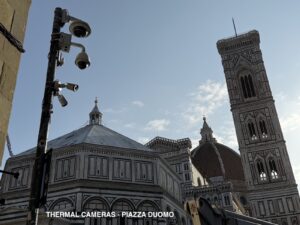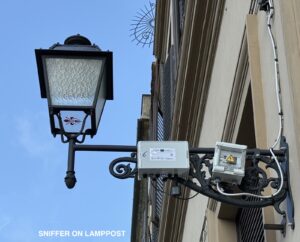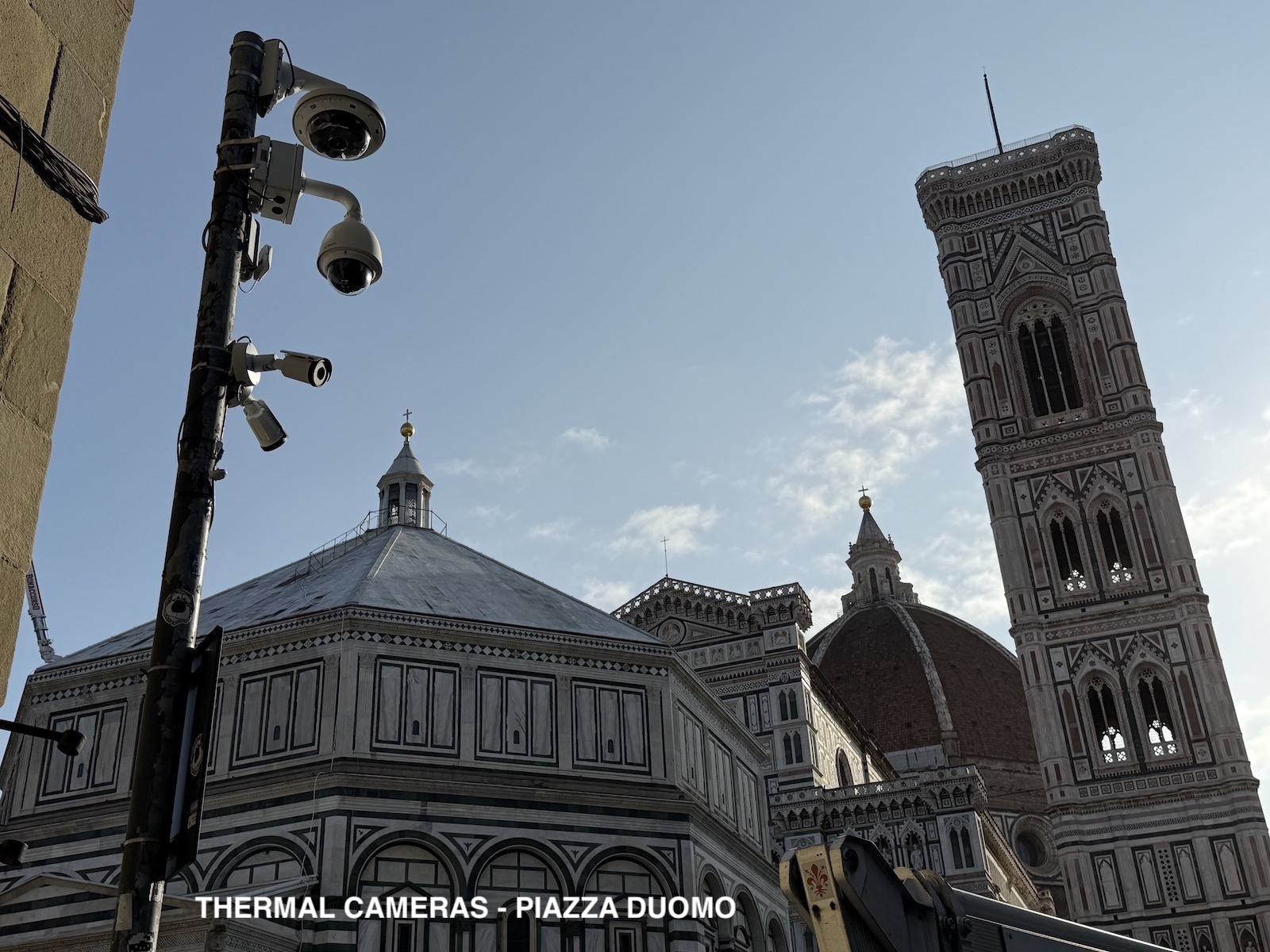The city of Florence is one of the eight pilot sites of TOURISMO. As an associated partner and particularly interested in the project’s applications, the Municipality of Florence is investing in advanced monitoring technologies as a key tool to address the challenges of overtourism—from loss of cultural identity to pressure on local infrastructure and environmental degradation.
Within this framework lies the project Termocamere per monitorare i flussi turistici (Thermal Cameras for Monitoring Tourist Flows), which was the focus of City Council Committee 2 – Economic Development, held on 9 September 2025 in the Sala Firenze Capitale at Palazzo Vecchio.
Conceived to support visitor management in the city through the use of advanced technologies and anonymised data, the initiative represents a tangible step in implementing the strategies promoted by TOURISMO.
A significant milestone was already reached on 6 August 2025 with the signing of a Memorandum of Understanding between:
- Municipality of Florence
- Department of Information Engineering (DINFO) – DISITLab, University of Florence
- Fondazione per la Ricerca e l’Innovazione, University of Florence
During the meeting, chaired by Councillor Enrico Ricci, Alessandro Monti, General Manager of Fondazione per la Ricerca e l’Innovazione, presented Florence’s European journey — from the HERIT-DATA project (Interreg Med 2021) to the more recent TOURISMO — highlighting the importance of using advanced systems and artificial intelligence algorithms to detect and interpret tourist flows.
The project integrates two main technological solutions:
- Thermal Cameras, to analyse people’s behaviour, including group dynamics, and to identify, through AI algorithms, the presence of transport means and other person-related aspects (e.g. gender, age, etc.), have been installed in Piazza Duomo.
- Sniffers, to detect the origin and destination of tourist flows, that cover a strategic area including Ponte Santa Trinita, Ponte Vecchio, Piazza Pitti, Piazza Santo Spirito, Piazza della Passera, and Via Tornabuoni.
The data collected — always anonymised and fully compliant with privacy regulations — will be made available to the municipal administration to improve the city’s liveability. Moreover, interactive tools, such as QR codes placed in strategic locations, will allow visitors to provide real-time feedback, further enriching the analysis of tourist flows and sentiment.


The results will be shared with all relevant institutions, including the Metropolitan City of Florence, the Tuscany Region, and Toscana Promozione Turistica.
The ultimate goal is to make the project replicable in other European contexts through the publication of an operational manual that will include institutional, policy, economic, and technical guidelines, ensuring the accessibility and sustainability of the adopted technologies.
With TOURISMO, Florence confirms its role as an open-air innovation laboratory for European tourism, adopting smart and sustainable solutions to better manage visitor flows and enhance the experience of both residents and visitors, applying a citizen science approach.
To learn more, please visit:
- Live streaming of the meeting City Council Committee 2 – Economic Development (Italian language)
- Source: Minutes No. 50, Meeting of 09/09/2025, City Council Committee 2 – Economic Development (Italian language)


